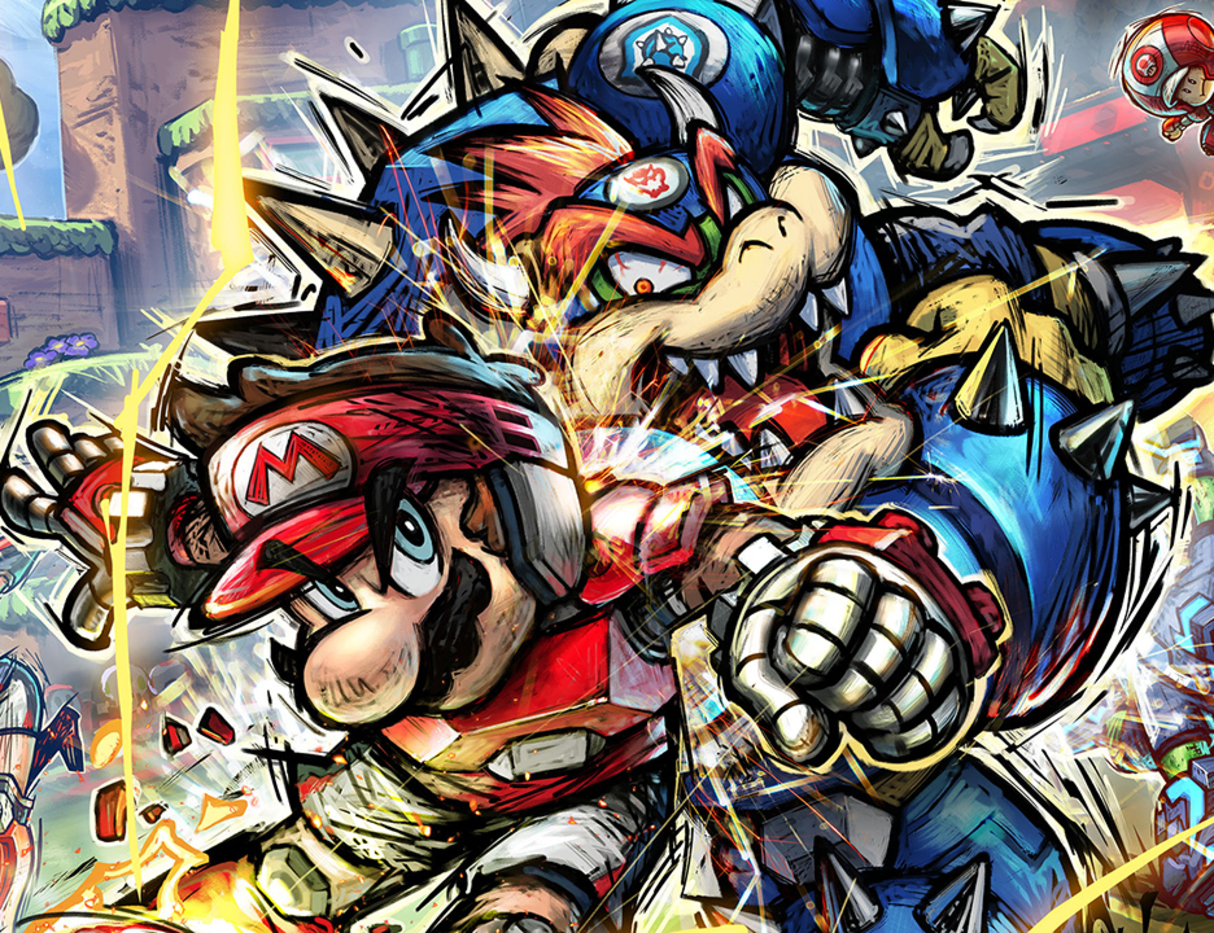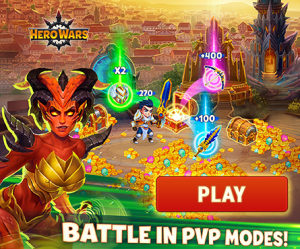Mario Strikers: Battle League may be the most mechanically dense Mario sports game I’ve played. The latest Mushroom Kingdom spin on soccer looks to take the sport seriously, allowing you to juggle passes, tackle, dodge, and cancel moves as the situation demands, even before factoring in its uniquely silly Mario twists. That makes for a high skill ceiling that could conceivably give the game a long lifespan, but its potential is held back by the fact that there just isn’t all that much to do.
The mechanical complexity of the game is explained back-to-back-to-back in a dizzying set of tutorials. Rather than ease you in with a few basic lessons and then teach you some field skills and then progressively ramp up throughout practical games, Mario Strikers: Battle League asks if you’d like to do the tutorial, and then delivers you all of them in a row. Just as you’re getting a handle on tackling and Hyper Shots, you start getting Expert-level lessons that teach advanced techniques like canceling a charged shot or the subtle differences between a free pass and a more powerful free pass. The mechanics themselves are complex so the hefty tutorials are understandable, but it can feel a little overwhelming when it’s all dropped in your lap at once.
Once you enter into the game menu, single-player opportunities to test out your newfound soccer skills are sparse. You can take part in a Quick Match, the most basic of all sports game options, or you can play in a series of four-team, double-elimination tournaments called Cup Battles. That’s it. There’s no distinct career mode, progression ramp, or even alternate rule sets to mix things up. It’s a remarkably anemic level of options, which makes the whole affair feel slightly unfinished. Mario Strikers has a great foundation, but there isn’t much to do or see inside of it.
The Cups are the bulk of the single-player content, and the closest Strikers has to a career mode. Those walk you through a series of AI opponents, each specializing in factors like speed, passing, or technique, finally culminating in a Championship Cup that puts all the skills together against strong all-rounder teams. It’s a fine-enough way to practice your futbol finesse and gather some coins, but playing a passing-focused team didn’t feel significantly different than playing a technique-focused team. As a result the process of playing through a handful of AI teams starts to feel samey rather quickly.
That said, the matches themselves provide some enjoyably chaotic soccer action. The fields are relatively small compared to a real-life soccer match, thanks in part to the cartoonish, oversized characters who occupy it. There’s real tension in the split-second decisions of where to find your lane and take an opening. Your AI-controlled teammates and opponents aren’t particularly smart, which cuts both ways. A human teammate might anticipate a shot and block a defender to give you an opening, but no such luck here. Your AI teammates mostly just roam around aimlessly. And while you can swap control freely among any of your four players, toggling to the right one in the heat of the action can be disorienting.
No matter who you choose to be on your roster, the goalies on both sides are AI-controlled Boom Booms. These perform their function decently, but it can feel frustrating to have no control over blocking shots on your own goal. That also led me to suspect there was some shenanigans at play, when I was breezing through the Championship Cup without a single loss and then suddenly, in the last game–against an opponent I had already beaten once–the game seemed to decide that I needed to take at least one L. My shots were blocked with pinpoint accuracy, and my own goalie was suddenly useless.
Though it mostly works within the familiar framework of soccer, Battle League takes one huge liberty with traditional rules: the Hyper Shot, which awards double points for a successful goal. If your team grabs a glowing orb when it lowers onto the field, any of your players can perform a Hyper Shot, with a swing-timer that determines how hard (or even impossible) it will be to block. Your players are vulnerable to tackles while winding up for the shot, and of course, your opponents can get the orb, too. This adds an extra layer of tense action to the play, between defending extra-hard when your opponent has the Hyper Shot, or working to open your own chances to get off a Hyper Shot. It also helps keep games from running away, because even if you’re down by two with 30 seconds remaining, you can always hope that a Hyper Shot opportunity will come along and help you tie it up.
That said, there’s a reason that two-point opportunities don’t exist in real soccer. Having rare opportunities for such a huge, game-swinging effect incentivized me to play extra defensively, essentially playing keep-away from my AI opponents, until I could take Hyper Shots. It was a valid strategy within the construct of the game mechanics, but it felt like it was working against the goals of the sport itself.
The Hyper Shots are also where the game shows most of its personality. Each character has their own Hyper Shot animation, and Battle League’s presentation transitions into a rough, sketchy animated style. Toad uses his enormous noggin to header the ball underground, while Donkey Kong squeezes the ball into the shape of a banana and gives it a hard smack. A personal favorite of mine belonged to Peach, who just charms the opposing team so much that their goalie willingly turns around and gently rolls the ball into his own goal. It’s adorable.
The flip side of this dose of personality is that, like the single-player tournaments, they get repetitive fast. Watching Rosalina kick a ball so hard it orbits around the moon is objectively dope as hell, but I can only watch the same canned animation so many times before it loses some of its impact. With only 10 characters, it doesn’t take long to have seen all their Hyper Shots and become tired of a few. There doesn’t appear to be any option to turn these animations off.
This being a Mario sports game, of course, there are also items distributed randomly across the field from item boxes. These can have a significant impact on the game, especially if you drop one to help ward off a defender when preparing a Hyper Shot, for example, but they functionally aren’t all that different from one another. The Mushroom gives you a speed boost, but the other items–a bomb, green and red shells, and a banana–all serve the same basic purpose as projectiles. The lack of differentiation makes them blend together without feeling as impactful as they could.
The other major source of personality is the Gear system, which is where Battle League gets its name. Gear has the look of tactical battle armor, from high-tech glowing eyepieces to heavily shielded chest pieces. If you’ve ever wondered what Waluigi might look like if he was in Tron or Gundam, this is a real treat. Functionally, the gear adjusts your players’ stats, so that you can make tweaks along the margins. You might like Luigi’s base stats but want him to be a little faster on the pitch, so you can buy a piece of gear to boost his speed, using coins won during matches.

These stat changes come with symmetrical trade-offs, though, so making these tiny tweaks doesn’t feel especially rewarding for your money. Mario’s Muscle Helmet, for example, awards +2 Strength but -2 Technique. You could compensate with the Trick Gloves, which give you +2 Technique but then come with -2 Speed, and on and on. Since the boosts are barely noticeable, these tweaks end up feeling relatively minor and might be best for high-level competitive play. Generally I found that if I wanted a faster character, I would just choose one who is already faster thanks to their base stats.
Most of the coins come from winning the single-player Cups, which award big windfalls of coins without too much effort. You’ll also be awarded coins during multiplayer matches, but much more slowly, so it’s clear that the single-player cups are where you’re expected to gather funds for most of your gear. Multiplayer, though, is the sole source of an entire separate currency used to customize your pitch. Since every match starts with smashing together the two fields, beautifying the field to your liking is a neat way to show off your progress.
The multiplayer mode also offers decent personalization options outside of the pitch itself. You can create your own soccer club with a team captain, uniforms, a simple pre-fab logo, and a name, or join an existing club. As you compete in a club, you’ll help it earn ranking for the season, but seasons were not yet available during our review period. The multiplayer matches worked well–at least in the controlled environment of pre-release matchmaking–and offered a more competitive opponent than the AI battles, which eased (but didn’t eliminate) the repetitive feeling of the Cups. This seems to be where Mario Strikers aims to get its longevity, but it still exists within the same simple framework.
Mario Strikers: Battle League is a thin package, without very much variety in terms of game modes and options. But it is a more technically complex game than many of the Mario sports titles, which may give it legs for dedicated players. Sports are all about proving your skill in head-to-head match-ups, and that will have to be enough, because there isn’t much else to it.






